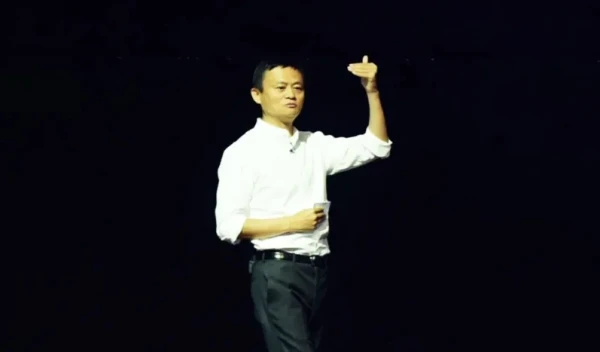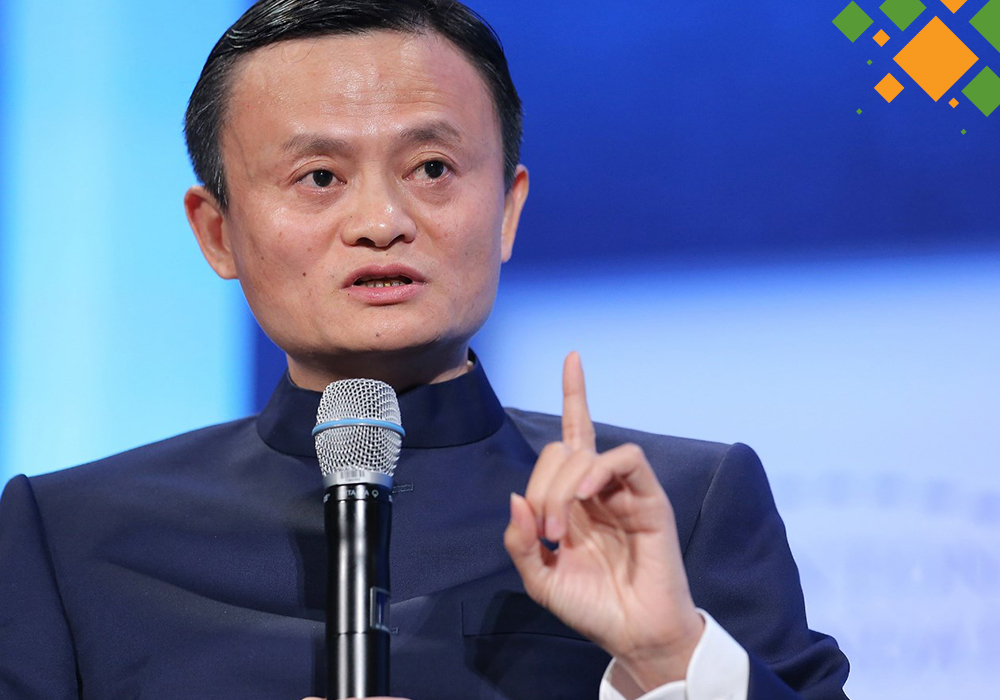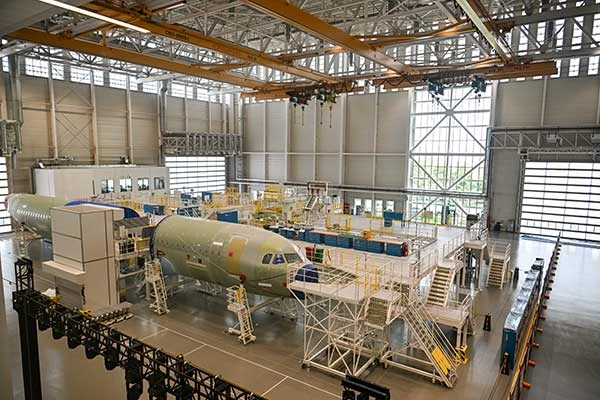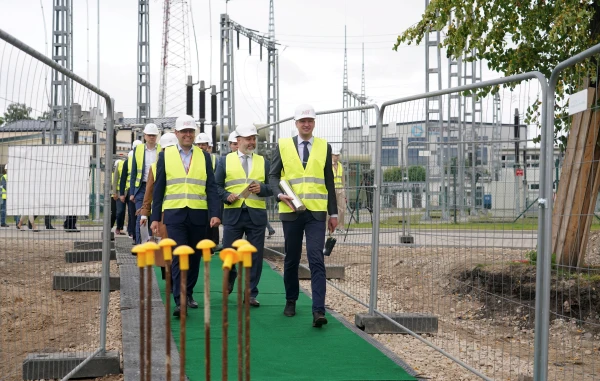
At 61, the entrepreneur is preparing for a new breakthrough.
Once the richest person in China and one of the pioneers of the Asian economic miracle, Jack Ma has been absent from the media space for almost five years. Having fallen out of favor in his country, he stepped back and engaged in teaching and investments. However, recently he has reportedly been making decisions and trying to "make Alibaba great again." What is happening, and does this mean Ma's return to the larger stage of the Chinese economy?
The troubles for one of China's wealthiest individuals began in 2020, after Jack Ma boldly criticized Chinese regulators. He called their practices outdated and accused them of stifling innovation in the financial sector. It is believed that this provoked a tightening of oversight over his business empire and the cancellation of the IPO of Ant Group (Alibaba's fintech subsidiary). According to the Financial Times, the suspension of the IPO was personally sanctioned by Chinese President Xi Jinping. After that, Jack Ma almost disappeared from the public eye.
The Chinese authorities launched a large-scale campaign against the "platform economy": in April 2021, Alibaba received an antitrust fine of 18.2 billion yuan ($2.8 billion), and in 2023, the fintech subsidiary Ant paid 8 billion yuan ($1.1 billion) and underwent a deep reorganization. In January 2023, Ma officially relinquished control of Ant and spent most of his time abroad — teaching at the University of Tokyo and investing in agri-tech and education.
The first signs of warming relations between the Chinese political leadership and Jack Ma appeared in the spring of 2023 when the entrepreneur unexpectedly visited Hangzhou and attended the Yun Gu school he founded. Almost simultaneously, Alibaba announced the largest restructuring in its history under the "1+6+N" model, dividing the business into semi-independent units.
The "1+6+N" model is Alibaba's restructuring, which assumes that one parent company (1) coordinates six nearly autonomous business groups:
- Cloud Intelligence Group — cloud services and AI;
- Taobao Tmall Commerce Group — main e-commerce for China;
- Global Digital Commerce Group — international retail (Lazada, AliExpress, etc.);
- Local Services Group — delivery, maps, services like Ele.me and Amap;
- Cainiao Smart Logistics — logistics and fulfillment;
- Digital Media & Entertainment Group — media and entertainment (Youku, etc.).
The letter N refers to an indefinite number of promising projects that can develop or go public separately. The goal of this procedure is to make the holding more flexible, accelerate decision-making, and simplify attracting investments.
In April 2024, Ma published an internal message supporting the new leadership led by Joe Tsai and Eddie Wu, calling for a return to the "Taobao spirit" — user orientation, speed, and product.
A key political sign was Jack Ma's invitation in February 2025 to a closed meeting of entrepreneurs with Xi Jinping. The Chinese leader then publicly promised "unwavering support" for the private sector. For the market, this was evidence that the conflict surrounding Alibaba had been resolved, and Ma's figure was once again recognized at the highest levels. Jack Ma's informal influence was acknowledged and confirmed for the first time in five years at the highest level.
Make Alibaba Great Again
It is important to emphasize: Jack Ma has still not returned to leadership positions in any Chinese companies. He is not listed on the boards of directors or in the executive management of Alibaba or Ant. Alibaba officially does not confirm Ma's appointment to any position, although some informed sources claim that he is already influencing key decisions and has returned to "make Alibaba great again."

According to Chinese media, Ma regularly appears on Alibaba campuses, interacts with top managers, and demands reports on key areas, primarily in artificial intelligence and cloud services.
At this stage, it is difficult to assess such a model of "influence without a position," but to some extent, all parties benefit from this ambiguity regarding the billionaire's status. The state demonstrates a willingness to cooperate with large private businesses while maintaining control over the frameworks within which this business can operate. Alibaba gets back its strategic inspirer, who informally strengthens the trust of employees and, most importantly, investors. Jack Ma himself regains his unofficial status as a tech visionary without bearing the regulatory risks of an official position.
Ma's involvement in the company's business is primarily explained by the development of technologies that are expected to become the main drivers of growth: Alibaba is actively increasing investments in cloud computing and AI, and Ma is reportedly overseeing these areas.
Meanwhile, Alibaba faces pressure from both traditional competitors (JD.com, Meituan) and new players like Pinduoduo and the ByteDance ecosystem (including Douyin). In response, the group is launching subsidy programs for sellers, strengthening logistics, and accelerating the rollout of AI functions. According to Japan Times, it was Ma who insisted on a record support package for sellers on the platform, which is perceived as a return to his entrepreneurial style during Alibaba's rapid growth. This is the first area of work that can be conditionally called "business-related."
AI as the Core of the New Strategy
Jack Ma's return coincides with a radical shift in Alibaba towards artificial intelligence — and this is unlikely to be a coincidence. The company introduced its flagship model Qwen3-Max, announced plans to exceed the previously stated 380 billion yuan ($53 billion) investments in AI and cloud technologies, and confirmed its intention to compete with global leaders across the entire technology stack — from data centers to application services. This is conditionally the second area of potential activity for Jack Ma.
Eddie Wu, CEO since 2023, has already increased capital expenditures several times, and Ma's personal involvement adds weight and speed to the projects. Inside the company, there is talk of a new formula: e-commerce + AI, where the marketplaces Taobao and Tmall become a field for implementing intelligent solutions — from personalized showcases to automated logistics.
Controlled Restart of the Economic Miracle
Ma's return reflects a change in the tone of Chinese economic policy. After a period of strict pressure on Big Tech, the authorities are eager to revive the private sector as a source of growth and innovation, especially in strategic areas — from AI to green energy. The symbolic forgiveness of the charismatic billionaire demonstrates that Beijing is ready to cooperate with business, but only if it fits within state priorities.
This can hardly be considered a course towards liberalization — the previous mechanisms of control have not disappeared. Regulators continue to oversee deals and technology imports, and Jack Ma himself, according to The Guardian, may be engaged in "state assignments" — for example, to influence other businessmen.
The outflow of foreign investments from China is a reality of recent years. Jack Ma's return in this context can be seen as a positive signal for both local and international businesses.
However, investors are leaving the Chinese market not so much due to pressure from the Chinese political leadership but because of the growing geopolitical risks in relations between China and the United States. In this case, it is unlikely that Jack Ma's return will radically change the trend of foreign investors leaving. At the same time, it is a good signal for private businesses within China — it is as if they are being told: "Grow, but do not challenge the decisions of financial and economic policy."
For global markets, Ma's emergence is a signal of trust and a driver of capitalization. Following the news of increased AI investments, Alibaba's shares in Hong Kong and the U.S. have already gained several percent. Opportunities for joint AI solutions based on Alibaba Cloud and the Qwen stack are opening up for corporate clients.

In the basic development scenario, Jack Ma will remain a strategic advisor, focusing on AI and cloud technologies. Alibaba will demonstrate stable growth in these segments, and the state will increase its support as a technological champion. If successes in AI are noticeable, Ma may receive a formalized role and turn Alibaba into a full-fledged global player in the artificial intelligence market.
The most obvious risk in this case is external sanctions on chips or a new wave of regulatory restrictions from the U.S. If that happens, Jack Ma's role may narrow to merely an image-related one, and investment plans will be adjusted.
Jack Ma's return is not a return of the tech billionaire to power and business, but a new distribution of roles and influence. He has once again become an important figure for Alibaba's strategy and an indicator of China's course in the economy and politics: private business can receive support if it operates within established rules. For Beijing, this is a way to stimulate growth while maintaining control; for Alibaba, it is an opportunity to develop technologies more rapidly; and for investors, it is a sign that the Chinese private sector still plays a significant role in the global economy.












